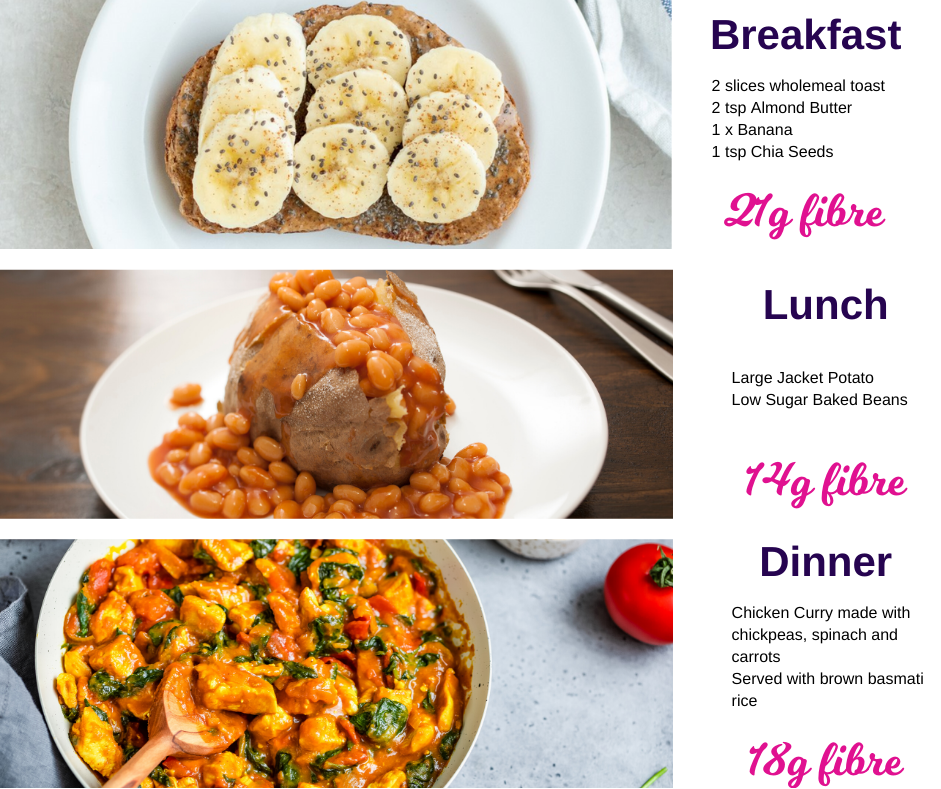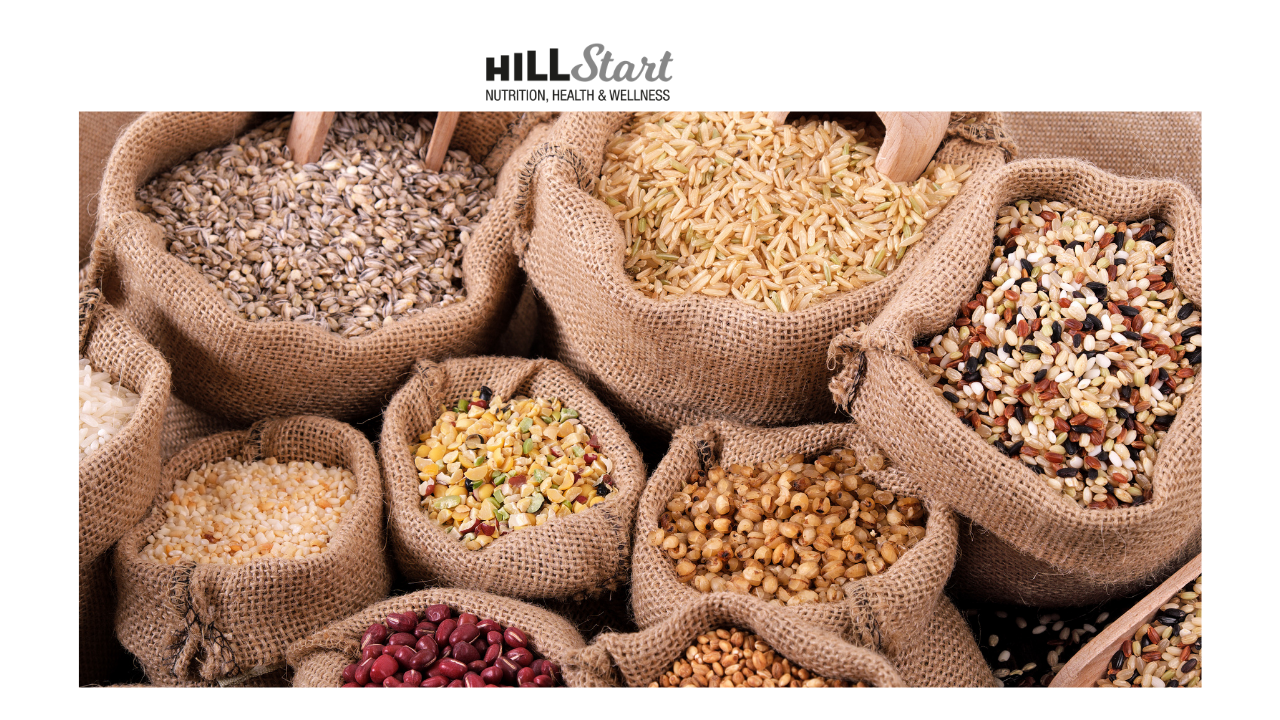As a nutritionist I talk to clients a lot about how much fibre (or not) they have in their diet. Most people know that fibre helps with stool formation, but what else does it do?
Fibre feeds your good gut bacteria.
Your digestive system is filled with bacteria, and what we want to do is make sure the good bacteria is well fed so it can do its job. Fibre is the preferred food of good guys. We don’t always notice when they are happy, as everything is in balance. However, if you start to feel bloated and uncomfortable, that’s likely to be the bad guys, whose favourite food is sugar.
Immune health.
Did you know that over 70% of your immune system is in your gut? And I’ve just explained, eating fibre keeps your gut happy. So, eating fibre also helps support your immune system.
How much fibre?
The British Nutrition Foundation recommends a minimum of 30g of fibre per day. What is concerning is that 60% of us only get 18g or less. It’s important to get fibre from a variety of sources and to spread it out over the day. Fibre soaks up water, so it’s also really important to make sure you drink plenty of water.
Are there different types of fibre?
Yes, there are. Fibre comes in two forms; insoluble fibre, which is the one that your bacteria like to eat, and soluble fibre, which helps to form your stools. Most foods contain a mixture of both types – another reason to eat a balanced and varied diet.
(By the way, fibre is can also benefit your mental health. Don’t believe me? Read this to find out why.)

As with most types of food and nutrition advice, eating a wide range of foods will give you the best balance. Here are some top ways you can get more fibre into your diet.
- Vegetables and fruit. All vegetables and fruit contain lots of fibre, particularly if you eat the skin. So, ensure you add some to every meal.
- Whole grains contain more fibre than processed grains such as white rice, white bread and pasta. Easy swaps for white rice are basmati or brown rice. There are loads of different types of pasta available such as lentil and chickpea pasta. Or why not try new grains such as quinoa or barley?
- Bread – Wholegrain or rye bread are good alternatives for white bread, but if you really want white then sourdough is best.
- Beans and pulses. They are perfect for adding fibre to your diet and are a really cheap way to bulk out meals. You don’t have to soak and boil for hours, there are lots of can and jars in the supermarket. My top tip is to add a handful of red lentils to a stew or casserole, they will thicken the sauce and cook down in about 20 minutes.
- Nuts and seeds are full of good fats and fibre. They are also high in minerals and a great way to not only improve your gut health but also add a nutritional punch. Beware though as they are high in calories so watch your portion size.
Does eating lots of fibre give me wind?
It is not advised to go from a very low fibre diet to a very high fibre diet overnight as you are likely to get some digestive issues including bloating and extra gas. By making some small cumulative changes over the space of a few weeks you can easily achieve your 30g a day (and you won’t need to blame the dog any more).
Anything else I need to know about fibre?
Fibre helps keep you fuller for longer as it takes longer to pass through the digestive system, which makes it helpful for weight control.
Remember to drink enough water. Soluble fibre binds with water and if you don’t drink enough it could cause constipation. One of my areas of specialism is gut health, and I work closely with clients to improve their digestive system. If you would like to know more please fill in the contact form or book a free 20 minute discovery call




